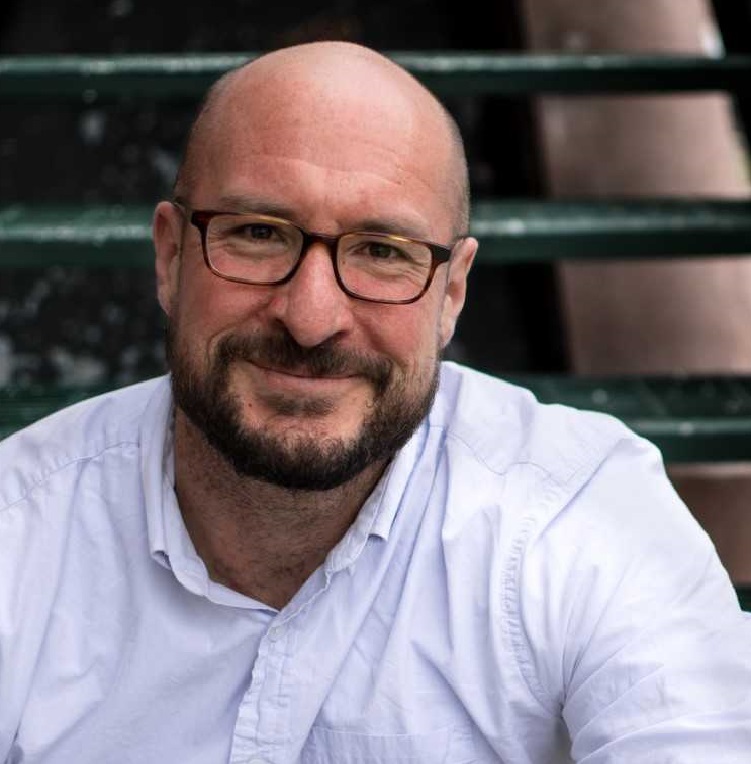CLS Research Spotlight: Ignacio Acevedo
March 17, 2024 - Karessa Weir
Before entering graduate school, Ignacio Acevedo worked in programs to support the success of young people. When he would look for guidance and experts to help him in his job, he seldom found guidance that fit for young Latines.
“It motivated me to think that I might become that expert,” he said.
 Now an Associate Professor of Psychology and Core Faculty in Chicano/Latino Studies, Dr. Acevedo has contributed greatly to the research on how young people access services and supports, especially within Latine communities. It is the basis of his Community-AID Lab which uses data to develop, disseminate and improve sustainable preventative and positive development programs for all youth.
Now an Associate Professor of Psychology and Core Faculty in Chicano/Latino Studies, Dr. Acevedo has contributed greatly to the research on how young people access services and supports, especially within Latine communities. It is the basis of his Community-AID Lab which uses data to develop, disseminate and improve sustainable preventative and positive development programs for all youth.
The key component in all of his research has been a fully integrated relationship with the communities that he is studying. He is a practitioner of community-based participatory research, which starts with communities identifying the problems with which they are struggling and moves to scientists collaborating on potential solutions. He often co-authors his research paper with community partners, seeing his role as not “fixing” a problem for a community but collaborating in applying science to find a solution together.
“It is wonderfully humbling,” says Dr. Acevedo. “It is very problematic when a scientist comes into a community—especially a Latine community-- with poor knowledge of that community,” he said. “I know that I don’t know everything. But I also know that by working in collaboration with a community, we can help that community and make good science. In turn, our findings can contribute to making science applicable more broadly.”
In 2008, Dr. Acevedo collaborated with Hernandez et al to describe the ways organizations can achieve equity in their services. They found the key factor is the organization’s cultural responsiveness.
“Culturally competent... services are to a great extent tied to a service organization's ability to appropriately understand and respond to the cultural characteristics of the community it serves,” Dr. Acevedo and his colleagues wrote,
Early in his career, he applied that lesson to the problem of how to get parenting training to Latine families that are in need of it. “Traditionally, parenting training is offered through mental health service organizations, but mental health treatment is stigmatized in Latine communities so where else can we go? We knew that families looked for help at schools, social service agencies, and churches. So we trained the natural helpers who work there to be parenting coaches and it worked great,” he said. “Families received got the supports they needed.”
Acevedo moved from working with parent training to working with gang-involved youth, specifically helping them address health needs and sexual health issues.
“The question was how do you make sex education and parenting training accessible to gang members? We applied the same principle as we had in previous research, which was to find out who they look for guidance to, he said. “Gang members told us that, for the most part, until something negative happens they weren’t likely to take advice from someone not involved in a gang, but they thought that we might have more luck with youth who are entering gangs and not fully active. So, we worked with former gang members to modify a sexual health education approach that wound up very successful with youth who were beginning gang involvement.”
Most recently, Dr. Acevedo has begun applying the strategy of thinking of inequity from a culturally-responsive service lens to Latine success in higher education.
“By thinking of higher education as involving overlapping services and supports, we can learn how to foster academic success in Latines,” he said.
Dr. Acevedo, together with CLS and Psychology dual doctoral student Rosaura Dominguez-Rebollar, focused on community colleges which have been historically important to Latinos in accessing higher education. In the paper titled “Factors and Interventions that Foster Success of Latinx Students in Public Community Colleges: A Theory-Driving Systemic Review and Content Analysis of Psychological Research,” they found that from an educational services perspective, the administration from the top down has to prioritize the enrollment, curriculum, programs and progress of students.
Current research under review takes that same perspective to examine how higher education institutions can best support the success of students from migrant farm worker families. Programs like CAMP (College Assistance Migrant Program) at MSU support the higher education success of these students. Importantly, the lessons learned with migrant farm working students can help support other groups of students who face obstacles for their higher education success.
Dr. Acevedo notes that programs like Chicano/Latino Studies help universities work toward parity in education by teaching all students – including Latine students – about the experiences of Latines communities in the United States.
“Latines historical and contemporary experiences are inadequately addressed in higher education. Programs like CLS help students address this inadequacy,” he said.
This has benefits for all students, and—for Latine students—contributes to making the university a more welcoming, supportive place to learn, he said.
“It was Chicano/Latino studies content that helped me feel represented and valued when I was an undergraduate student. A quarter century later, I feel blessed to provide MSU students the opportunity to learn about the history and experiences of Latines.”
The CLS program is the community that supports this work.

